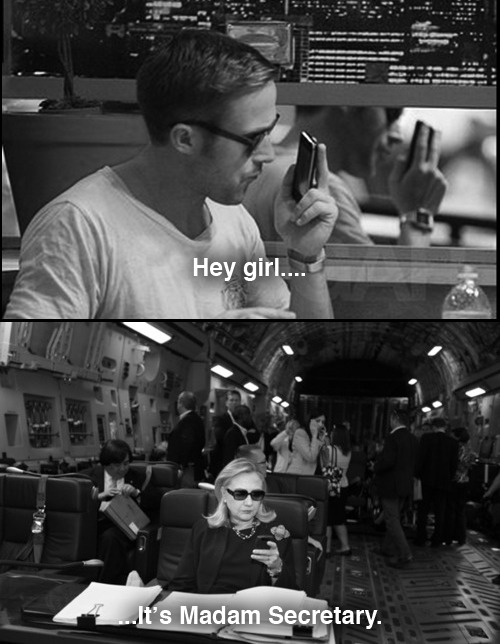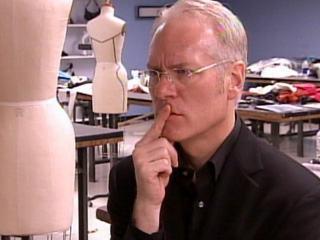It's been a while since we've done a proper political update here, so here you are with the stories that matter, what you won't hear from the mainstream me-dumb-ia (note: come up with better media perjorative).
-In an attempt to cash in on recent pop culture trends and, some analysts believe, position herself for a 2016 Presidential run, Hillary Clinton released Youtube parody video entitled "Text Me Maybe." It has recently surpassed the trailer for Twilight: New Moon in Youtube's Trending category.
▼
Wednesday, June 27, 2012
Sunday, June 24, 2012
What IS in a Name: Countless Caravans for a Mormon Boy
This is the final chapter in a three part series. For the previous sections, I suggest you click on the links provided for Part 1 and Part 2.
When I think about how I can harmonize these various versions of Allan—my grandfather’s kindness and his cruelty; my grandfather and me; my zealous missionary self and my uncorrelated, intellectual spirit—I am left with an understanding that this is the kind of story that has already been written and, at the same time, it is the story no one has written at all. I’m not the first person this has happened to, but it is new because it is involves me. I am reminded of one of the final lines from Tony Kushner’s remarkable epic Angels in America. The character Harper, a possibly-recovering valium addict who never made for a very good Mormon, reflects, “Nothing’s lost forever. In this world there’s a type of painful progress—longing for what we’ve left behind and dreaming ahead. At least I think that’s so.”
So I look back. I turn to the faith of my fathers, the faith that took Davis-es across foreign lands on trains. I look to the legacy of pioneers who did not know what it meant to be Mormon but created for themselves what it meant in their move. I look to the faith of prophets who proclaimed that this faith is both an inheritance we are given and a gift extended that we claim. Allan Nathan Davis is a name that comes with honor and sin, an inspiring history and mistakes in need of repentance.
I hear a voice from the dust made of the bones of my ancestors. The words of a prophet-king reverberate in my ear and settle in my heart: “I would that ye should remember also, that this is the name that I said I should give unto you [. . .] I say unto you , I would that ye should remember to retain the name written in your heart [. . .] that ye hear and know the voice by which ye shall be called.” Allan Nathan Davis is a name complete on its own but given unto me. It is thick in legacy but mine to shape and command. Like a master gardener employed by nobility, I craft and sculpt knowing such art never fully belongs to me. The art of my name belongs to others. But it is my responsibility, my inheritance. It is my talent to add surplus to. I look back to take my step forwards.
Friday, June 22, 2012
A Very Muppet Marriage
To celebrate my recent birthday (thank you--oh, stop!--do go on...) I bought myself The Muppets soundtrack from the most recent Muppet film written mostly by Jason Segel (an interesting story in and of itself). It's only $9.99 on iTunes; in other words, I couldn't resist.
As Casey and I basked in Muppet soundtrack glory, I got to thinking about Piggy and Kermit. A strange marriage from the beginning -- back before I even got the jokes they told I thought a pig and a frog getting married was hilarious, comedy gold! I began wondering about an odd aspect of their marriage: their relationship.
Now, Kermit as we all know, is the leader, but the job seems to have been thrust on him by virtue of being the Muppet all the other Muppets knew. In case you don't remember, Kermit and Fozzie started the whole mess of Muppet excitement back in 1979 ('76 if you count The Muppet Show, but for my purposes, 1979... anyway).
As Casey and I basked in Muppet soundtrack glory, I got to thinking about Piggy and Kermit. A strange marriage from the beginning -- back before I even got the jokes they told I thought a pig and a frog getting married was hilarious, comedy gold! I began wondering about an odd aspect of their marriage: their relationship.
Now, Kermit as we all know, is the leader, but the job seems to have been thrust on him by virtue of being the Muppet all the other Muppets knew. In case you don't remember, Kermit and Fozzie started the whole mess of Muppet excitement back in 1979 ('76 if you count The Muppet Show, but for my purposes, 1979... anyway).
A bear in his natural habitat... a Studebaker!
Tuesday, June 19, 2012
What IS in a Name: Cruelty in the Character of Kindness
The following is a continuation of my previous post entitled "What IS in a Name: Faith of My Fathers." If you have not already read that piece, I suggest you start there and then come back to this one. If you have read it already, enjoy this, the second entry of a three part series.
If we were to stop in the ecstasy of elegy, only honoring the man and the faith of the man that shaped the name, it would be a disservice to the man and the faith. In moments of hopeful though perhaps delusional optimism, we like to think we are defined by our best attributes, our greatest triumphs, our perfect days. Mistakes are the aberrations, the exceptions to the general rule of our being. In darker days of despair, we convince ourselves that we are our failures, our errors, our defects and disorders. Occasional elevated behavior makes for miracles: phenomena which do not reflect our true natures. Often, we compromise, finding the grey between the extremes, understanding ourselves in a space created by these black and white poles.
While helpful, there is another way to think about this interaction: rather than black and white creating the grey that is us, black and white might remain undiluted in us. We are not an amalgamation or soup; we are a quixotic Mobius strip—convoluted and paradoxical, always-already within and without ourselves. Good and evil; light and dark—these are not diametrically opposed in an either/or relationship external to us but rather live within us far more intimately than the colorful black/white/grey metaphor permits us to imagine. The best in us exists within our worst traits, and our worst qualities nourish the strongest parts about ourselves.
If we were to stop in the ecstasy of elegy, only honoring the man and the faith of the man that shaped the name, it would be a disservice to the man and the faith. In moments of hopeful though perhaps delusional optimism, we like to think we are defined by our best attributes, our greatest triumphs, our perfect days. Mistakes are the aberrations, the exceptions to the general rule of our being. In darker days of despair, we convince ourselves that we are our failures, our errors, our defects and disorders. Occasional elevated behavior makes for miracles: phenomena which do not reflect our true natures. Often, we compromise, finding the grey between the extremes, understanding ourselves in a space created by these black and white poles.
While helpful, there is another way to think about this interaction: rather than black and white creating the grey that is us, black and white might remain undiluted in us. We are not an amalgamation or soup; we are a quixotic Mobius strip—convoluted and paradoxical, always-already within and without ourselves. Good and evil; light and dark—these are not diametrically opposed in an either/or relationship external to us but rather live within us far more intimately than the colorful black/white/grey metaphor permits us to imagine. The best in us exists within our worst traits, and our worst qualities nourish the strongest parts about ourselves.
Mobius Strip
I could balance the elegy of Allan Davis with stories of emotional explosions, cataloging instances when my grandfather did not live up to the name he himself made; but, that would perpetuate the idea that such actions were either aberrations from or fulfillments of some sort of static “Allan” identity. Instead, Allan Davis can be understood in an instance where cruelty worked under the character of kindness.
Friday, June 15, 2012
What IS in a Name: Faith of My Fathers
My name is Allan Nathan
Davis. I love each root of the family tree—each line of grandparents and
ancestors—that leads to me; however, I inherited all three parts of my name
from my father’s father’s side of the family. Obviously, there’s the surname
Davis: that’s from my dad . . . and his dad . . . and his. Then there’s my
middle name Nathan—in honor of the memory of Nathan Davis, the first Mormon
convert in the family. I wish I could regale you with legendary adventures or
faith-promoting accounts from his life involving snow, famine, disease, or
miracles, but Nathan Davis was simply not that kind of Mormon. He joined the
church in the 1860s and moved to Utah after the completion of the
transcontinental railroad. I am not the stuff of wagons and handcarts; we
Davis-es are strictly train people.
Allan Mervin Davis, my
paternal grandfather and most immediate namesake, traveled by train from Salt
Lake City to Rochester, New York after finishing medical school at the
University of Utah. While he moved around quite a bit, especially within
Louisiana and Florida, Dr. Allan Davis never returned to Utah. And yet, because
my other three grandparents were each converts to the church and all from
states on the east coast, I associate my family’s long history of faith and
connection to Utah primarily through Allan. He and his wife raised ten children
in Florida; seven still live there, my dad included. But for some reason, I
think of Utah as the land of my fathers, the seat of my past.
Like me, Allan Mervin Davis
grew up in a family of three. Like me, he always wore glasses. Like me, he was
restrained and studious from a young age. This set him apart from the very family
he raised. In an opposites-attract sort-of-way, my grandmother was a social
force, a fortuitous woman whom “outgoing” does not begin to describe. She loved
sports, camping, and large social gatherings. Each of their children seemed to
inherit her personality. A Davis, by definition, was engaging and rambunctious;
except, of course, for the patriarch Allan Davis, a reserved man who went
camping and attended sporting events as a supportive father. He preferred to
play the piano and listen to recordings of symphonies at home.
Sunday, June 3, 2012
The Gay Lifestyle
Today in Sunday School, a class member discussed the danger of "too much tolerance" in our society with the example of a lesbian co-worker who was treated, he believed, with too much deference by his other, mostly LDS, co-workers. The point was that they ought to show love to her while, I guess, simultaneously conveying their disapproval of her activities. "Gosh, Susan, you're a great person, but you're living a life that's morally offensive. Can you help collate these reports?" The last thing we ought to do, he implied, was show approval of her...lifestyle. Ah yes, that lifestyle. The Gay Lifestyle. The life that gay people live. The style in which the life of gay people happens. Gay people doing...gay stuff. For life. In Style.
Pictured: The gay style life.



